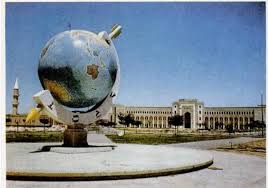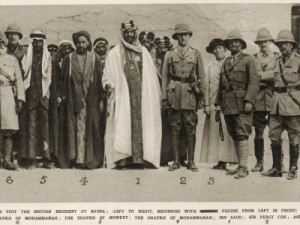“The so-called Houthis (a name the group doesn’t use) who have seized power in Yemen’s capital have Iranian friends but the relationship is unclear and we should not jump to facile assumptions of a close Iranian alliance. We need understanding of what the Houthis seek, whether we share interests and whether our financial and military assistance can help leverage political stabilization; the kind of judgments that can only be made on the ground in an evolving situation. The Saudis have strong interests in Yemen and strong influence with some tribes. We should try to cooperate with the Saudis because of their strong influences, our broad relationship with them and the depth of their interest. But we cannot rely on their or anyone else’s analysis…………..”
The Saudis, especially those along the Red Sea, are historically and tribally and in some cases genetically tied to Yemen. But their rulers have always been proprietary about Yemen: in the 1930s they stole a big chunk of northern Yemen and in the 1960s they armed and funded tribes that fought the Republican regime and the Egyptian army.
Yet they have also always kept Yemen at arms length in terms of their own collective arrangements. When the Saudi King Abdullah, in a moment of passing madness in 2011, invited faraway Morocco and humorless Jordan to apply for GCC membership, he ignored Yemen. Yemen received some GCC aid over the years, but apparently not enough to lift its economy, and local divisions and corruption took care of the rest.
The GCC princes and potentates basically appointed General Hadi as president of Yemen, although they had to swallow and accept the local corrupt Muslim Brotherhood (Islah) as his partners. I know, he won with an astounding 99.8% of the vote, barely below the 100% of the vote a king or a tribal ruler in the GCC normally wins his non-elections (at birth).
The Houthis may have bitten more than they can chew or swallow with their new move in Sana’a. Trying to rule ALL of Yemen, even with willing strong allies, is as tough as trying to rule ALL of Afghanistan (without American military support). They apparently know that: they seem eager to compromise and share power, as indicated by their proposed 500 member council.
The Saudis and the other GCC potentates have their own interests in Yemen. In some cases they are colored by fears and reasonable worries of Iranian influence at their southern flank, in other cases they are colored by deep Wahhabi sectarian prejudices. One thing is certain: they are never concerned about democracy and freedom, unless it is to oppose them. Some of the potentates might be delusional enough to feel that they can now make a deal with their wayward Al-Qaeda kin (AQAP) to salvage influence in Yemen after cutting aid.
The article has some good sensible advice for President Obama. As for the positions of some members of the U.S. Congress and the Senate, they can be influenced by lack of information, or by moneyed lobbyist pressure, or both.
Cheers
Mohammed Haider Ghuloum 




